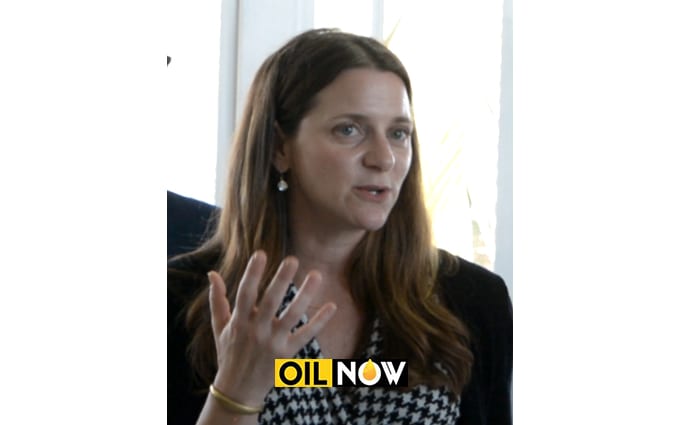As discussions continue in Guyana on the issue of making the terms of the Production Sharing Agreement between ExxonMobil and the Government of Guyana public, the US super-major says it is fully prepared “to follow the law” in keeping with its commitment to transparency.
A number of persons, groups and members of civil society in Guyana have been calling for the details of the contract that paves the way for oil production in the South American country to be made public. The Guyana government has maintained that its primary decision to not fully disclose the terms of the agreement hinges on legal advice related to potential court proceedings for the settlement of a territorial claim by Venezuela.
ExxonMobil’s Senior Director, Public and Government Affairs, Kimberly Brasington, says the matter of disclosure is an important discussion and speaks to the critical issues of transparency and trust. The company, she said, is committed to the highest standards of transparency.
“I can say without hesitation that ExxonMobil is committed to the highest standards of business conduct and anti-corruption wherever we operate, and that includes transparency,” she said.
In many of the countries ExxonMobil operates, governments choose to publish their petroleum agreements – or parts of the agreements, Brasington said. She added, “With respect to publishing entire contracts, it is ExxonMobil’s preference not to disclose contracts and private agreements in order to protect proprietary or commercially sensitive information. However, if the law in a particular country requires it, we follow the law.”
In addition to the potential court proceedings on the Venezuela territorial claim, Guyana’s Minister of Natural Resources, Raphael Trotman has said that a clause found in the Petroleum Act also appears to prohibit the government from making such a disclosure.
According to the Petroleum Act, “…no information furnished, or information in a report submitted, pursuant to this Act by a licensee shall be disclosed to any person who is not a Minister, a public officer or an employee of the Guyana Geology and Mines Commission, except with the consent of the licensee.”
Brasington said ExxonMobil will continue to work closely with the Guyana Government on new reporting rules, in order to support transparency. “We have been an active participant in EITI since its global inception in 2003 and in Guyana, our country manager, Rod Henson, is a primary member of the Guyana EITI multi-stakeholder group representing Industry,” she stated.
Guyana officially submitted its candidature application to the EITI International Secretariat in Oslo, Norway, on August 18. Once Guyana’s application is successful, the country will become the 53rd candidate of EITI, which is a global standard that promotes revenue transparency and accountability in the extractive sector.
Brasington said ExxonMobil supports effective transparency initiatives. “We believe that in order for a transparency initiative to be successful without discouraging future investment we believe it should meet the following criteria: one, it should apply to all companies in the extractive industries to maintain a level playing field, including all oil & gas contracts, mining contracts, and forestry contracts. And two; commercially sensitive and proprietary information must be protected,” she said.
In Guyana, she stated, “democratically elected officials have all the contracts and agreements.” These contracts are not secret, Brasington pointed out; “but the number of people that see them is limited to those that hold a responsibility, as part of their duties, to negotiate, monitor, and audit the contracts.”
In June, Guyana’s Ministry of Natural Resources announced that it had approved the ExxonMobil Liza Phase 1 development plan and issued a Production License to the company, paving the way for first oil, scheduled for 2020.



